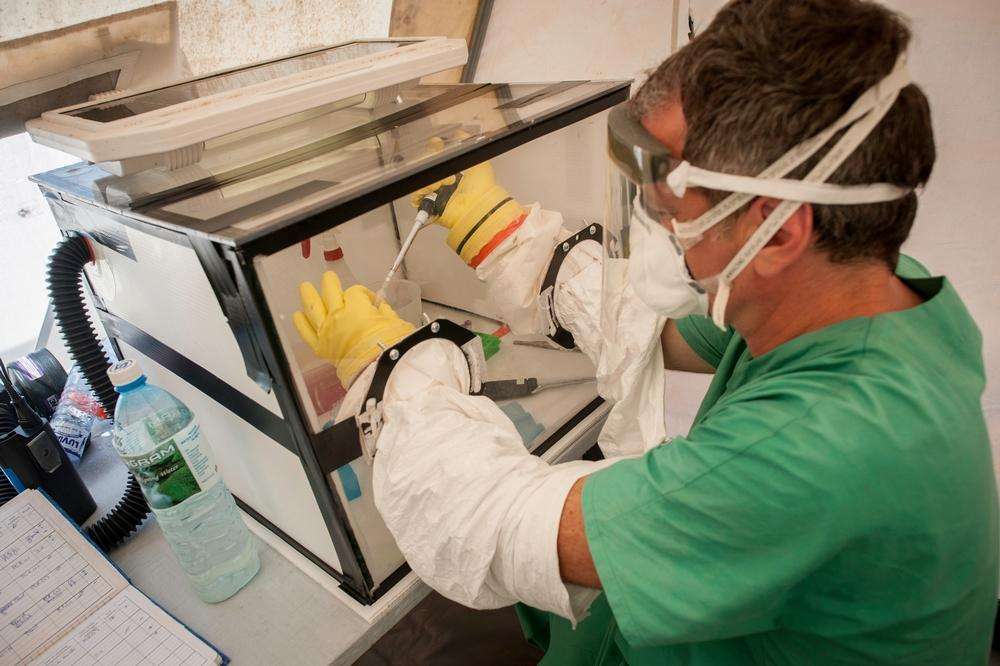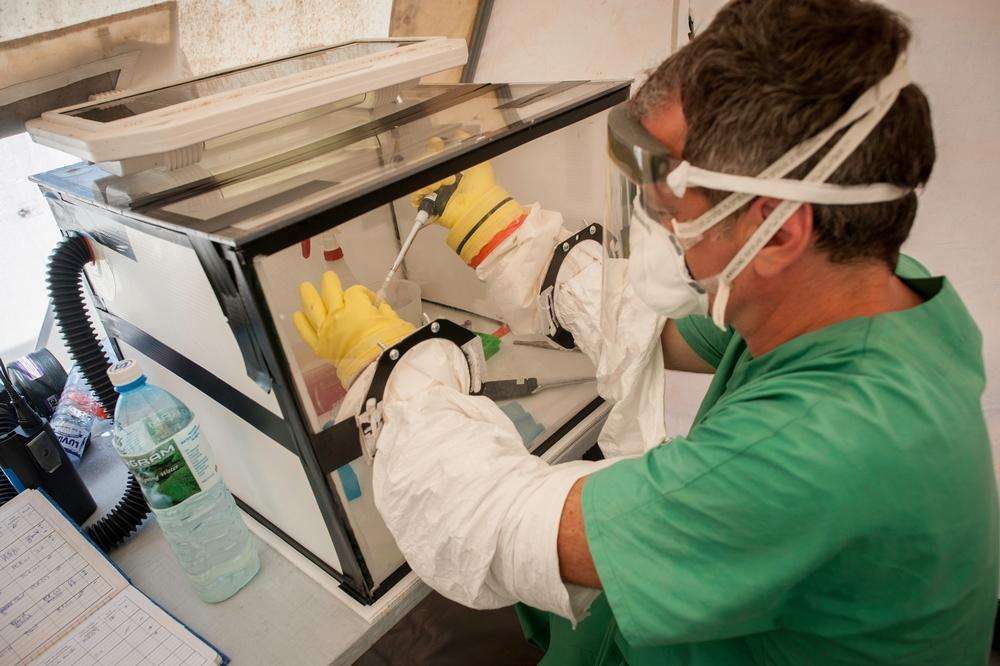Dr. Armand Sprecher is a Doctors Without Borders/Médecins Sans Frontières (MSF) hemorrhagic fever specialist.
What is the status of the research on Ebola vaccines and treatment?
We are in regular contact with researchers and we are aware that there are a handful of Ebola drugs and vaccines currently in the early stages of development. There are a couple of drug candidates that have shown real promise among non-human primates, which is a first indication that it could be safe and efficacious for humans. But to date none of these drugs or vaccines have been tested on humans, sick or healthy.
From what we know it could be another two years before a safe and approved drug or vaccine is available for clinicians. Regulatory procedures can be very lengthy to be able to organize for further testing.
Is the drug administered to the two American aid workers promising?
The drug that has been administered to the two American health workers seems to be very promising. It is the only one of the candidate drugs that seems to show efficacy on people who have already developed symptoms. Others would have to be administered within one or two days after infection, when symptoms will not be visible yet.
The quick health improvement that the first aid worker to be treated has experienced gives hope.
Why is it so unusual to administer a drug that is in such an early phase of development?
When you develop a new drug or vaccine, you normally first test on small animals, then on non-human primates so you can have an indication about whether it is harmful or not (safety) and whether it has the capacity to cure or prevent the disease (efficacy). If results are positive, it is then tested on healthy humans to check safety before it is tested on sick (or exposed, in the case of a vaccine) humans.
Now the discussion is about rolling out a drug that has shown promising safety and efficacy among non-human primates but has not gone through any of the others steps. This is therefore an extraordinary measure that should only be applied in extraordinary circumstances, mainly when doctors believe that people have such a high probability of dying that it is worth trying this treatment.
Should that experimental drug be rolled out across the affected region to save lives?
The major issue is safety. We do not know if the drug might harm the patient and in what way. If patients develop an unstable condition in reaction to the treatment, we may end up putting them into more danger.
The drug that was administered to the two aid workers is basically antibodies. There are many other treatments used for other diseases that are based on antibodies and we know the most likely side effects that they could bring (mainly allergies) so we can be prepared.
So considering the very high mortality caused by Ebola, if we’re confident that the safety levels will be good, MSF believes this could be a good option. But of course there is no guarantee that all patients will be cured as a result.
Under what circumstances would MSF decide to use that drug in the current outbreak?
MSF is keen for its patients to benefit from one of these drugs and hopes that all the barriers can be lifted to make that happen. The first and most obvious one is linked to production. As an experimental drug, the manufacturer does not have huge stocks and we would have to see how fast they could produce hundreds of doses.
The second issue is about regulations. Bypassing different research stages usually required in the development of a drug means that regulatory bodies that approve usage and exportation of drugs would have to exceptionally approve. The first step is the drug regulatory body in the country where the drug is produced, then obviously governments of the countries where the drugs would be administered would have to be on board as well. They would have to provide the legal and ethical framework for this to happen.
Last but not least, it is unthinkable to administer a new drug without doing a very meticulous data collection and monitoring of patients. This would mean extra human resources in treatment centers. Today, MSF is overstretched trying to respond in the three countries (Guinea, Liberia, and Sierra Leon) most affected, and extra support would be needed.





